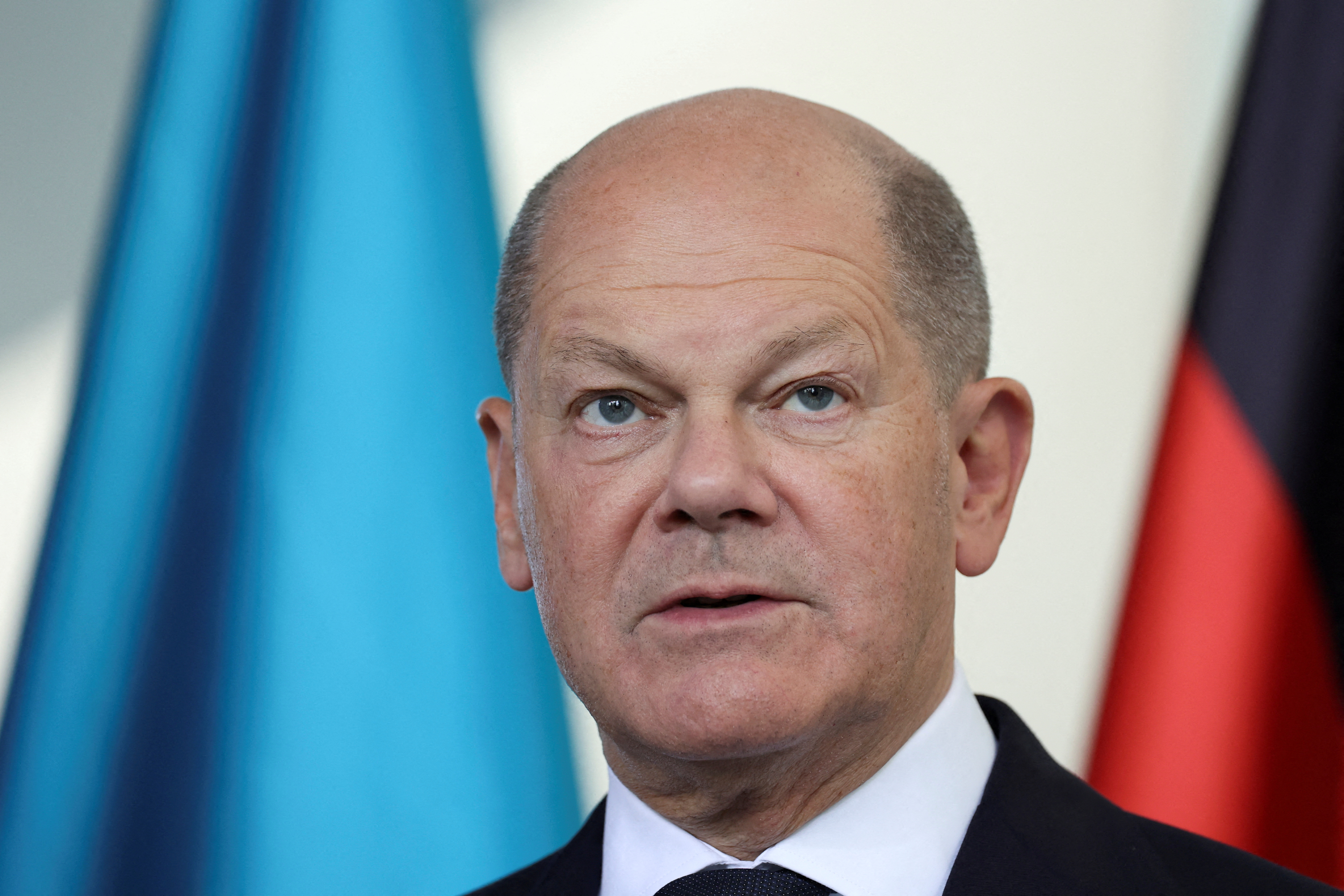pctay123
Publish Date: Fri, 13 Sep 2024, 06:41 AM

BERLIN, Sept 13 (Reuters) - German Chancellor Olaf Scholz embarks on his first visit to Central Asia on Sunday, travelling to Kazakhstan and Uzbekistan as Berlin looks for new markets and sources of energy and minerals in the wake of the Ukraine war.
He already has some key deals under his belt. Kazakh crude started flowing through the Druzhba pipeline last year, keeping Berlin’s Schwedt refinery running after the European Union imposed sanctions on Moscow, and Russian supplies dropped off.
"This marked a completely new direction in bilateral cooperation, as no Kazakh oil had previously flowed through this pipeline," a Kazakh government official said.
Scholz's visit will give some clues on where Germany wants to take the relationship next.
On top of the oil, Kazakhstan has more than two trillion cubic meters of natural gas reserves, according to Kazakh government data.
Many German companies who shut down businesses in Russia - historically a key hub for Central Asia - have set up their own sales offices and operations across the region, Eduard Kinsbruner, Central Asia regional director at the German Eastern Business Association, said.
German groups have been negotiating contracts in chemicals, skilled labour, renewable energy, logistics and education among other sectors, Kinsbruner added.
Many of those contracts are expected to be signed during Scholz's visit, he added.
HYDROGEN HOPES
Kazakhstan - seven times the size of Germany - has lots of space, as well as sun and wind, for energy projects.
In Kazakhstan's southwestern region of Mangystau, Germany-based SVEVIND Energy Group is developing what it says is one of the world’s largest green hydrogen projects, with a planned 40 gigawatts of renewable power capacity.
German President Frank-Walter Steinmeier visited in June last year.
Germany's new push is already showing up in the statistics.
In 2023, Kazakhstan exported 8.5 million tons of oil to Germany, accounting for 11.7% of Germany's total oil imports, and up from round 6.5 million tons before the Ukraine war.
That jump made Kazakhstan Germany's third-largest supplier after Norway and the United States, data from Germany's Federal Statistics Office showed.
German investments in Kazakhstan rose by 64% last year compared with 2022, according to data from Kazakh Invest, a government agency.
"Because of the regimes and the political system, Central Asia wasn’t a top priority for Germany," Stefan Meister, a Central Asia expert at the German Council on Foreign Relations, said. "But the war has fundamentally changed this dynamic."
Trade between Kazakhstan and Germany almost doubled after Russia’s February 2022 invasion of Ukraine, with turnover rising by 89.5% in 2022 compared with the previous year, according to data from the German Eastern Business Association.
'LOOK TO THE FUTURE'
"When we look to the future, we see great potential," a German government official said ahead of the trip.
"We will need gas for two more decades. The tenders for new gas power plants (in Germany), which will all be hydrogen-ready, are currently in their final stages. This means they will need to get gas from somewhere."
Behind all the new plans, there are still old historical and geographic realities.
Kazakhstan may offer an alternative to Russia for Germany. But it is also weighed down by an outdated Soviet-era grid and complex tangle of red tape.
"If it (massive renewables expansion) is complicated in Germany, it's much more complicated in a country like Kazakhstan," said Thomas O'Donnell, an energy expert at Berlin's Free University.
Russia still has significant influence in Kazakhstan, which has avoided taking sides in the Ukraine war. Most tellingly of all, that Druzhba pipeline carrying Kazakh oil to Berlin, crosses over Russian territory.
So a relationship with Russia, of a sort, will persist.
"On one hand, we support Ukraine," said Meister of the German Council on Foreign Relations. "On the other, our businesses still need resources."
Sign up here.
https://www.reuters.com/business/energy/germanys-scholz-seeks-central-asian-energy-ties-shadow-ukraine-war-2024-09-13/












